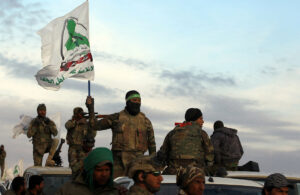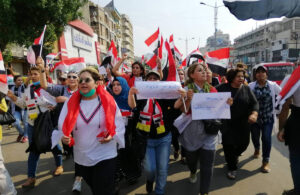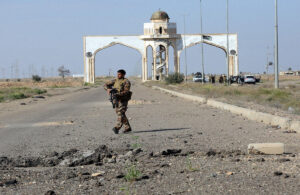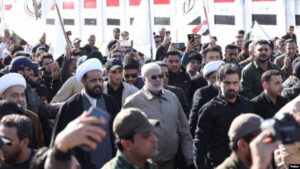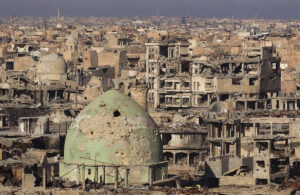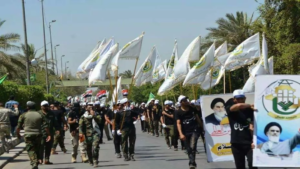
In July 2017, the city of Mosul, located in northern Iraq, was liberated from the clutches of the “Islamic State” organization. However, since then, a new form of dominance has emerged – the armed factions affiliated with the “Popular Mobilization Forces” have taken control of the city’s public scene at various levels: security, political, social, and even economic.
These factions have established what are known as “economic offices,” which are linked to no fewer than 12 armed groups and political parties. These offices engage in contract projects and tenders, leveraging their influence to obtain contracts and then subcontracting them to other parties in exchange for upfront commissions. Additionally, they impose royalties on offices, companies, and merchants and meddle in the affairs of both government and private institutions throughout the city and its outskirts.
Despite promises made by former prime ministers, including Adel Abdul-Mahdi and Mustafa Al-Kadhimi, to close down these armed faction activities within the economic offices, none of these pledges have been fulfilled. The economic offices continue to operate out of houses and buildings claimed by the armed factions under various pretexts.
These factions have managed to infiltrate and dominate various sectors, such as housing, construction, infrastructure, trade, import, gas stations, poultry projects, and food trade. The monthly profits from these ventures amount to millions of dollars, often acquired through extortion of merchants and affluent individuals. Consequently, many entrepreneurs have been compelled to leave the city and cease their business operations there.
According to a local official in Mosul, some of the prominent armed factions dictating the city’s economic landscape include Asa’ib Ahl al-Haq, the Sayyid al-Shuhada Brigades, Kata’ib Hezbollah, Brigade 30 (also known as the Shabak Mobilization Forces), and the Babylonian militia. Additionally, local and tribal groups are involved to a lesser extent.
The pressure exerted by these factions has led to the transfer of contracts and projects to unscrupulous companies, while the economic offices have become hubs for project distribution, contracting, and illegal land sales. The Nineveh administration is unable to control this situation, given the immense influence wielded by these parties, who use their economic power for political gains.
However, the activities of the economic offices are not limited to armed factions alone; influential political parties in Nineveh have also established similar offices and bodies to claim a share of the lucrative projects.
Experts and researchers have urged the government to support local authorities facing pressure from these economic bodies and influential figures. Unfortunately, previous attempts to shut down the economic offices have failed, and the situation has only worsened with the addition of new offices linked to influential politicians and deputies. This has resulted in over 60 known economic offices operating in Nineveh, further compromising the region’s resources.
The governor of Nineveh, Najm al-Jubouri, has recently acknowledged the existence of commissions and percentages imposed on projects within the province, though he refrained from naming the entities responsible. The influence of armed factions has become so pervasive that certain areas, like Sinjar, Nineveh Plain, and Tal Afar, cannot be accessed without the approval of these militias.
The armed factions’ involvement is particularly pronounced in ongoing projects, including bids and tenders initiated by the Nineveh Governorate. For instance, recent projects like the heavy sewage drainage network in Mosul, worth 600 billion dinars, and the imposition of water meters on all housing in the city have seen their intervention.
In summary, the economic offices run by armed factions and influential political parties have effectively held Mosul’s prosperity hostage, leading to widespread corruption, economic exploitation, and a stifling of legitimate business activities. Urgent action is required to restore governance and transparency to ensure the city’s growth and development.

